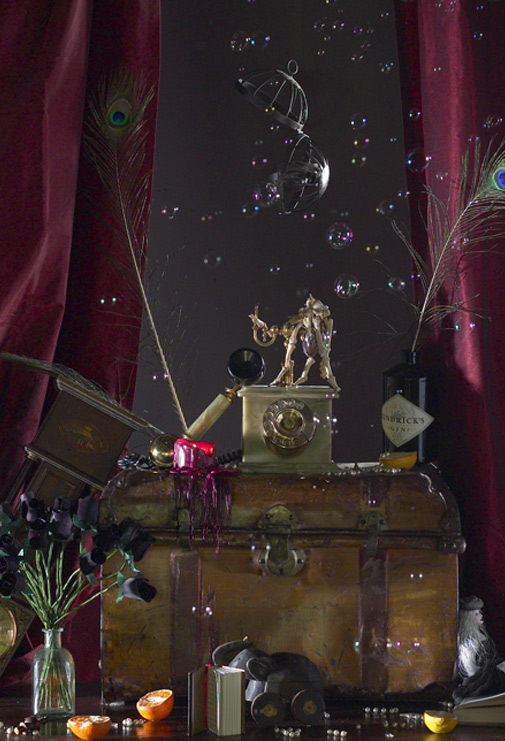- Vol. 01
- Chapter 08

The Last Experiment
In later years, the Philosopher's enquiries become ever more esoteric and, it must be admitted, ever more difficult to defend. This great mind, once the toast of all Europe, was now occupied with theories most of us would consider unlikely if not downright laughable. His early ideas on the concept of time were widely influential, but those ideas had mutated into a perplexing obsession with the idea that time was 'undoubtedly as possessed of agency as so-called animals' and capable 'at least in potential, and probably in actuality, of direct interchange of symbolic content with other agents.'
Commentators differ on whether or not the Philosopher believed that time was literally alive, but what is not in doubt is that he thought it should be possible to communicate with it. The memoirs of the great man's housekeeper Margaret Cullen are as invaluable in this area as in many others, for she recalls his increasingly fraught attempts to get some kind of response from 'aloof, ignorant' time. She writes of his daily habit of suddenly spinning round whilst walking and roaring 'Stop!' at the top of his lungs, before peering around to see if time was proceeding at its usual rate. Invariably he would discover that it was, and Cullen writes movingly of how downhearted he became at these snubs, and how he increasingly came to believe that time held some kind of personal distaste for him, possibly due to 'a lamentable habit of tardiness in his youth.' For a time the sage switched to French in his attempts to communicate, then spent some months learning Serbo-Croat, believing that this might be the key language because of what Rogan called 'a misunderstanding arising from a misprint in his edition of Liebniz' - yet all of these attempts came to nothing.
The Last Experiment
Convinced of the ineffectiveness of direct attempts to communicate with time, the Philosopher refocused his efforts towards the great mainstay of his youth: experimentation. Over the final summer of his life he would lock himself away in his laboratory for days on end, emerging for neither meals nor company, consenting only to have Mrs Cullen lay a black pudding sandwich outside the door at the hours of one and seven each day. Within that room he constructed an enormous number of experiments designed to prove that time, far from being some abstract concept, was a conscious entity that could be spoken to, and would presumably reply if it felt so inclined. Much of his work revolved around convoluted apparatus with clocks at their centre, extensive arrangements of wire, various talismans and good luck charms, and a plentiful supply of his other late obsession: bubbles.
When he was discovered dead on the morning of September the first that year, he was surrounded by clocks, sundials, thermometers, magical trinkets, measuring gauges, and evidence of another activity that occupied him more and more in those later years, and can perhaps be ascribed some role in the great man's late aberrations: dozens of empty gin bottles.
